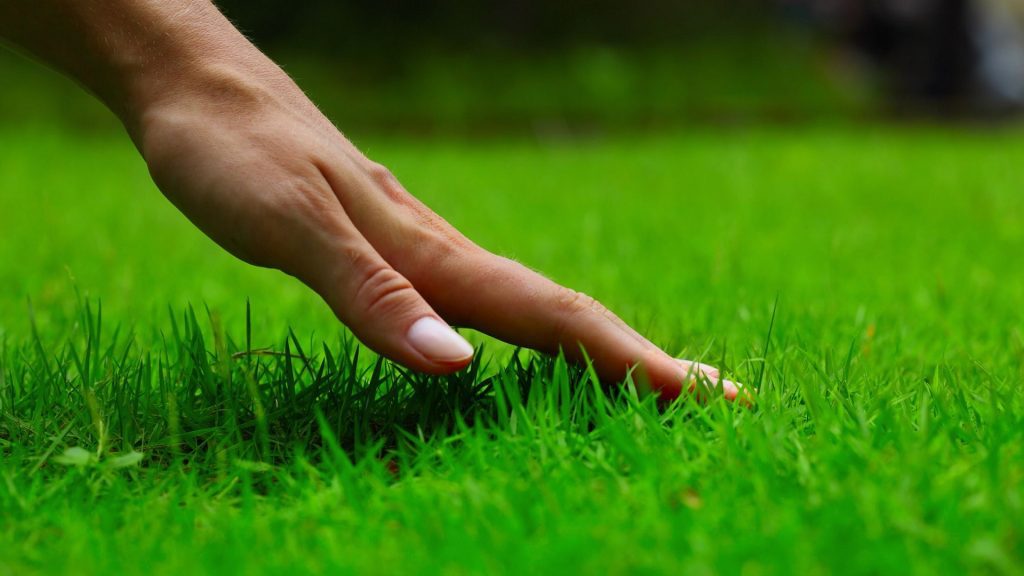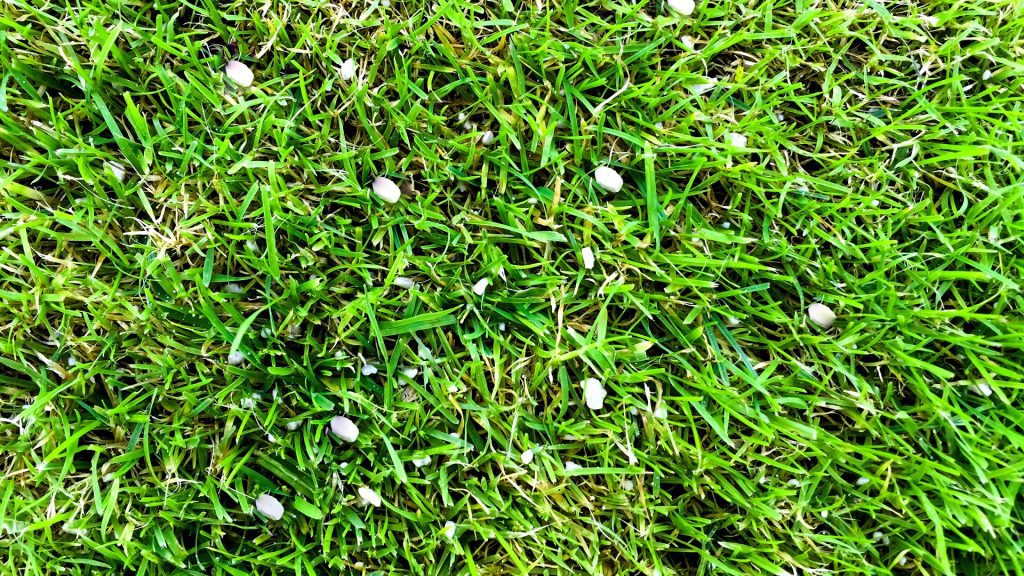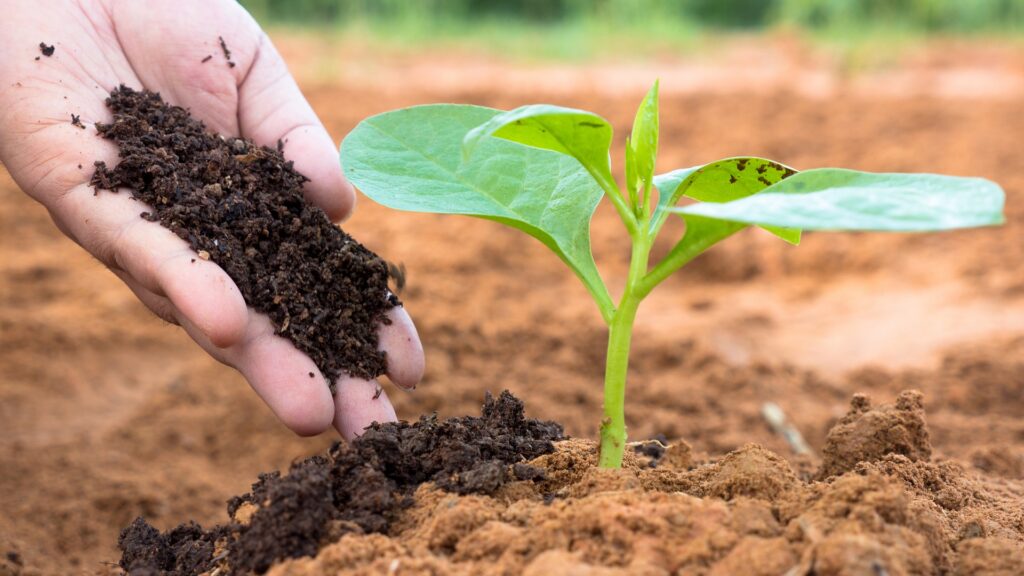
How to Make Organic Fertilizers for a Happy Garden
The organic gardening trend has blossomed in recent years but if you’ve had a quick look at the cost of some of the natural gardening supplies, you’ll see how expensive they are.
One simple way to cut costs but still get the benefits of organic goods is to make your own organic fertilizers and put them to use in the garden.
Can you make your own organic fertilizer?
There are lots of organic products around the home that would perform well in a homemade fertilizer, including fruit and vegetable scraps, manure, grass clippings, and coffee grounds. Knowing which ingredients work best and how to use them as fertilizer is important for getting it right though.
Before you splurge on a bag of expensive organic fertilizer, consider the possibility of making one at home for yourself.
If you want to learn how to make organic fertilizers that are good for your garden and wallet, read on for some tips to make it easy.
Are Organic Fertilizers Better?

There’s a lot of ongoing debate between organic and inorganic fertilizers as to which is better, and the truth is there’s no clear winner.
The gardener should decide whether organic is best by looking at what they’re growing, the needs of their plants, and what they prefer in terms of impact on the environment and their wallets.
There are loads of benefits to choosing organic fertilizers though, which is why they’ve gained so much traction in recent years.
If you’re on the fence about going organic and want advantages a homemade natural fertilizer has, check these out:
- Improving soil structure: Unlike other fertilizers that just focus on the plants, organic fertilizer is especially helpful for improving the soil structure underneath. With healthy soil, you’ll see better growth rates and happier plants, so it makes sense to focus on this.
- Slow releasing: The benefits of using a slow-releasing fertilizer are that it lasts for longer and the impact will be felt more gradually. Although organic products have a reputation for not being as effective sooner, this long-term approach can be just what your garden needs.
- Good for the planet: The environmental benefits of using homemade organic fertilizers are plenty. Because you’re not purchasing anything from the store it makes no negative impact and you’re saving things that would have ended up in waste by turning them into plant food.
- Pet and family-friendly: There’s no need to worry about your kids playing on a lawn with chemical fertilizers on it or your pets accidentally eating something in the garden that’s been sprayed with poison. It’s a guilt-free way to fertilizer the garden when you use only organic products.
- They’re free: The biggest benefit of homemade natural fertilizers is that they don’t cost a cent. When you compare that to some of the costly options on the market, it’s an obvious win for your pocket.
Can You Make Your Own Fertilizer?

Making a homemade fertilizer is entirely possible and it can do wonders for your garden.
However, it’s not as simple as just throwing a bunch of ingredients together and hoping that it’ll work, as there’s a bit more thought that goes into it.
Before making a fertilizer, it’s best to do a soil test of the area you plan on treating, so you can get an idea of what nutrients it’s missing.
As with a store-bought fertilizer, you’ll want elements of nitrogen, phosphorous, and potassium, as well as other vital elements like calcium and magnesium.
Another important thing to note with organic fertilizers is that if you want it to be classed as 100% organic, all of the ingredients must be organic as well.
This means grass clippings free from pesticides and herbicides, organic coffee beans, organically grown vegetables, and organic eggshells, just to name a few.
The Best Ingredients for Homemade Organic Fertilizer

The good news is, organic fertilizer is easy to make, with many household and garden items that you might not realize.
If you have any of these laying around, and they’re classified as organic, you can consider adding them to your homemade fertilizer:
- Vegetable and fruit scraps: Any fruit or vegetable scraps you use in your kitchen are ideal for fertilizer.
- Egg shells: Wash out the eggs so there’s no remaining yolk or white left inside, and leave calcium carbonate-rich shells.
- Coffee grounds: Organic coffee beans that have been ground down are great for fertilizer, with high amounts of nitrogen, potassium, and magnesium.
- Manure: Animal manure will only work if the animal has been fed an organic diet, so be careful here.
- Grass and weed clippings: Both are high in nitrogen and when treated long enough can be helpfully applied right back onto the lawn.
- Dried leaves: Dried leaves collected from around the garden are high in nitrogen and as long as they haven’t been treated with any chemicals, they’re perfect for organic fertilizer.
- Fireplace ashes: Wood ash is especially helpful for acidic soil as it helps to restore the pH balance.
- Fish tank water: The water must be unfiltered and dirty as this is when it contains large amounts of nitrogen.
Step by Step Guide
If you’re not comfortable coming up with your own recipe for fertilizer, you can follow ours for some compost tea.
The compost mixture can feature any of the ingredients listed above, as long as it’s been given time to develop into compost, so you can create an easy organic fertilizer.
- Use your finished compost to fill a five gallon bucket around a third of the way.
- Add water to the bucket so that it reaches the top with only a few inches of space left.
- Place the bucket somewhere in a shaded area outside and away from direct sunlight.
- Leave the mixture to steep for four days, without touching it during this time.
- Strain the mixture out through a piece of cloth and capture the filtered fertilizer in a new bucket.
- Use the wet compost left in the bucket by tossing it around your garden bed, as it will still be loaded with nutrients.
- Keep the remaining liquid fertilizer in an airtight container and mix it with a 10:1 water to fertilizer ratio when you plan on using it.
Where to Use Your Homemade Fertilizer
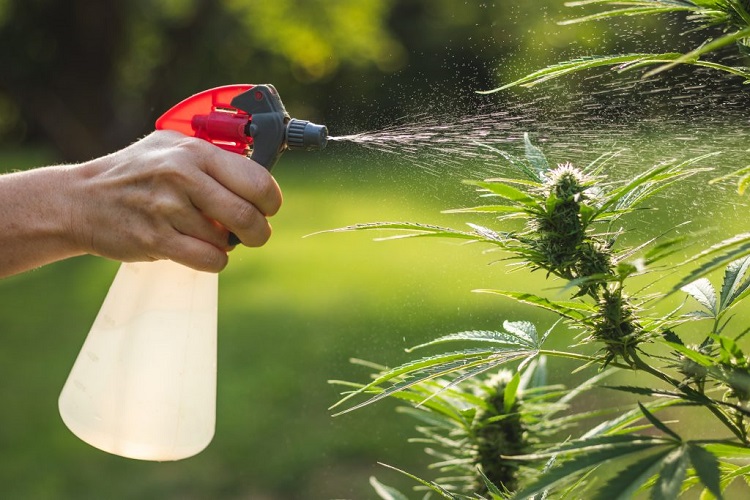
With your new homemade fertilizer ready, you’ll need to think about where to apply it.
If you’ve chosen to make a compost tea with all of your organic ingredients, there’s no limit to where and how you can use the potent formula.
For the best results, this natural fertilizer should be sprayed directly onto leaves and onto the soil near the roots of the plant.
If you want to treat your lawn with it, apply the fertilizer directly after it’s been aerated as this will ensure that the product gets down into the soil and the roots where it needs to work its magic.
Homegrown Fertilizer for Happier Plants
Organic fertilizer has loads of benefits for your garden and even more so when you craft it yourself.
If you’re looking for somewhere to use your kitchen and garden waste and want to feel good about doing your part for the planet, experiment with making an organic fertilizer yourself.
Related Questions
Fertilizers are an integral part of gardening, whether they’re organic or inorganic, granulated or liquid, or anything in between.
If you want to get the scoop on fertilizer and find the right one for your lawn and garden, check out these commonly asked questions that can give you a rundown.
Is Liquid Fertilizer Bad for the Environment?
Some fertilizers contain chemicals that might be harmful to the environment, especially if they runoff from our gardens and into the waterways.
If this happens, algae can bloom within the waterways which blocks water, and as they die, they decompose and remove oxygen from the water.
How Long Does It Take For Fertilizer to Wear Off?
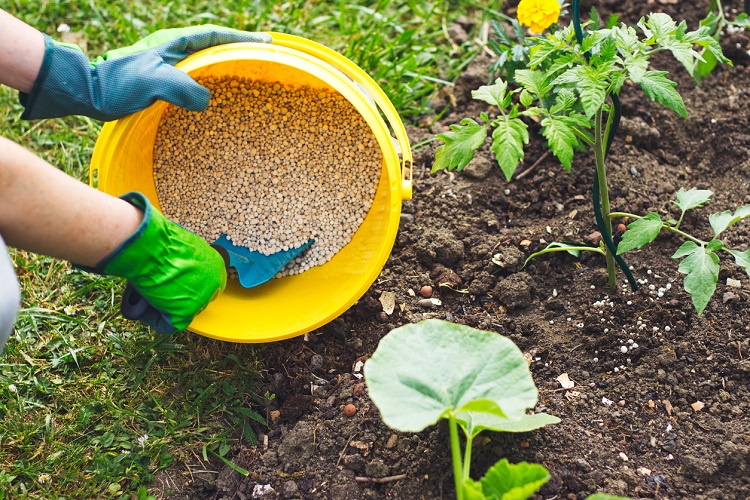
A regular fertilizer will take around three to four weeks to wear off, but slow-release formulas are designed to last for up to nine months.
You need to be cautious about applying too much fertilizer though, as it can have the opposite effect and burn the plants if it’s applied too soon after the last dose.
What is the Shelf Life of Fertilizer?
Different types of fertilizers carry different shelf lifespans, so you’ll need to check the guidelines of the product you’re using.
Usually, an unopened liquid fertilizer will last up to 10 years and granular fertilizer even longer if the packaging remains closed, as long as they’ve been stored correctly.
Resources:
